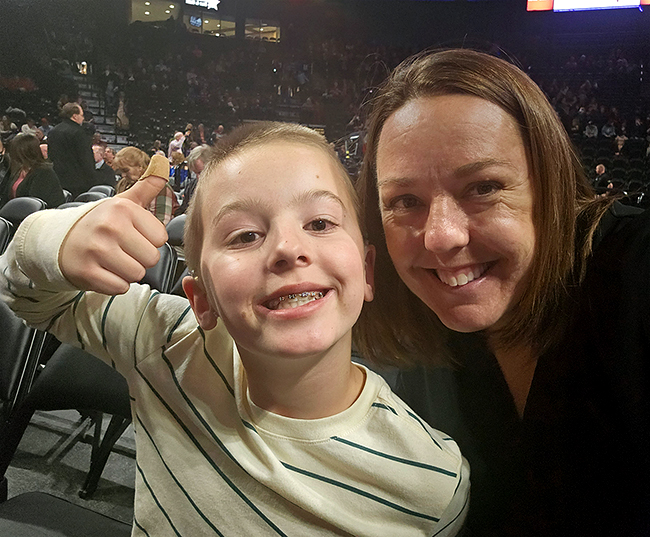The Power of “I Don’t Know”
By Jami Fries, Colorado H&V
My son, Nathan, was born at 34 weeks. We started our journey apart; I was separated from my newborn who was in the Neonatal Intensive Care Unit (NICU) while I was in recovery. Later, I had to return without him, torn in two, to care for his two-year-old brother at home while making daily trips at least an hour away to be with Nathan while he grew stronger. At three days old, our NICU nurse told us that our son had tested positive for a virus with a name we had never heard. He had congenital Cytomegalovirus or cCMV. She had no other information for me, except that I “probably caught it on a shopping cart at the grocery store.” I carried that with me for months. The reality? I probably caught it from my two-year-old at home who was in daycare. What I wish she would have said, and something I would not have held against her was, “I don’t know.”

As Nathan grew and we entered our Early Intervention (EI) years, we found more quick phrases from our EI team and our new healthcare providers. They were meant to provide comfort, or sometimes question the diagnosis because Nathan “looked so healthy.” I remember going to an appointment, one of many, where my provider asked us, “Are you sure he has CMV? He doesn’t have microcephaly” (a small head circumference). Comments such as this could, and would, derail a new parent on their journey. What I wish they would have done: asked more questions because they didn’t know.
When Nathan entered his school years, I advocated to NOT have CMV listed on his IEP. I struggled with that decision. It’s in his health records if someone were to look. I didn’t want the CMV positive label in school to derail his providers from wanting to work with him, as I have seen happen many times. He presents with no greater risk of infecting his teachers and school staff than the child sitting next to him. His friends in all reality have a high probability of having had CMV before, since one-third of children have it before they reach five years old. So instead of misinformation being shared within the education system about CMV, I wish educational teams would say “I don’t know,” and ask questions.
We as parents expect and sometimes demand our healthcare teams, our EI teams, and even our education teams to have all the answers. One thing this journey has taught me is that our providers don’t have all the answers. No one does. The pressure for providers to be able to have answers for us at their fingertips sets an unrealistic expectation of care, and gives way to lack of creativity and worse–misinformation. I have hope that we can shift and give space for the phrase “I don’t know.”
Not knowing answers is not a sign of weakness or being less than. I implore you to ask the questions and be open to new, factual information. So next time someone asks you a question, stop and think, “Is this a fact, or something I heard from someone?” Be willing and comfortable to say “I don’t know. But let’s find out together.” ~
H&V Communicator – Spring 2025